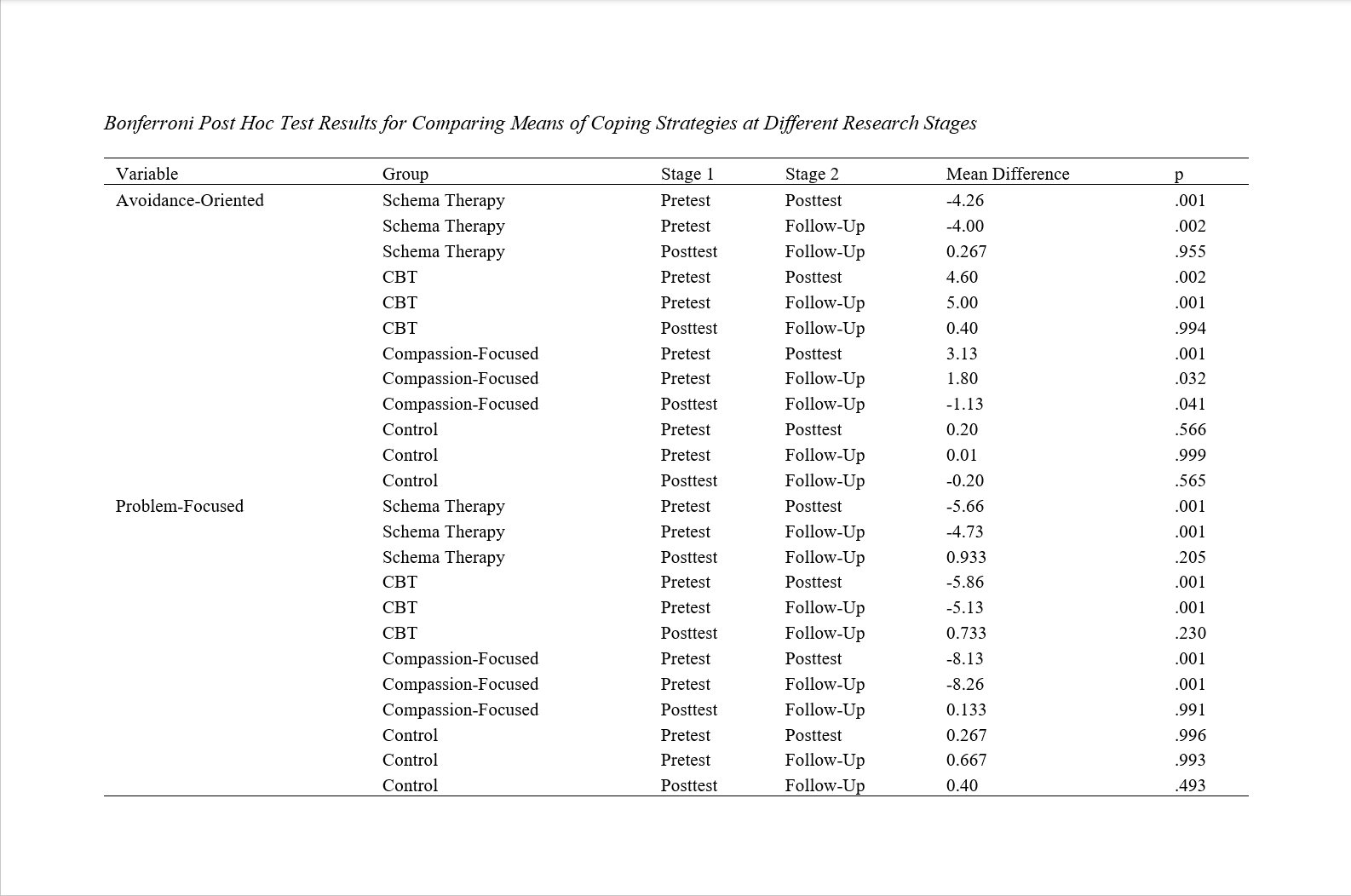Comparison of the Effectiveness of Schema Therapy, Cognitive-Behavioral Therapy, and Compassion-Focused Therapy on Components of Loving, Emotional Empathy, Marital Values, Coping Skills, and Willingness to Marry Among Single Women with Fear of Marriage
Keywords:
Schema Therapy, Cognitive-Behavioral Therapy, Compassion-Focused Therapy, Coping Skills, Fear of MarriageAbstract
Objective: The present study aimed to compare the effectiveness of schema therapy, cognitive-behavioral therapy, and compassion-focused therapy on components of loving, emotional empathy, marital values, coping skills, and willingness to marry among single women with a fear of marriage.
Methods and Materials: This experimental study used a pretest-posttest-follow-up design with four groups (three experimental groups and one control group). The statistical population included all girls with pre-marital fears in the city of Semirom. From this population, 60 participants were selected using convenience sampling based on inclusion and exclusion criteria and were assigned to four non-randomized groups. The control group was placed on a waiting list, while the three experimental groups received schema therapy-based interventions (Fadavi Nia & Khayyatan, 2021), cognitive-behavioral therapy (Mohammadpour et al., 2015), and compassion-focused therapy (Pirjavid et al., 2021) over eight 90-minute sessions. All participants responded to the Coping Skills Questionnaire (Billings & Moos, 1981) in three phases. The collected data were analyzed using descriptive statistics (mean and standard deviation) and inferential statistics.
Findings: The results showed that all three methods effectively improved the two dimensions of avoidance-oriented and problem-focused coping.
Conclusion: Based on these results, it can be concluded that these three methods are suitable for improving psychological constructs, with schema therapy and cognitive-behavioral therapy being more effective in enhancing the dimensions of coping mechanisms. Counselors and psychotherapists can use the techniques and strategies from these methods to improve these dimensions.
Downloads

Downloads
Additional Files
Published
Submitted
Revised
Accepted
Issue
Section
License
Copyright (c) 2024 Azar Behiroz (Author); Felor Khayatan (Corresponding Author); Zahra Yousefi (Author)

This work is licensed under a Creative Commons Attribution-NonCommercial 4.0 International License.




















